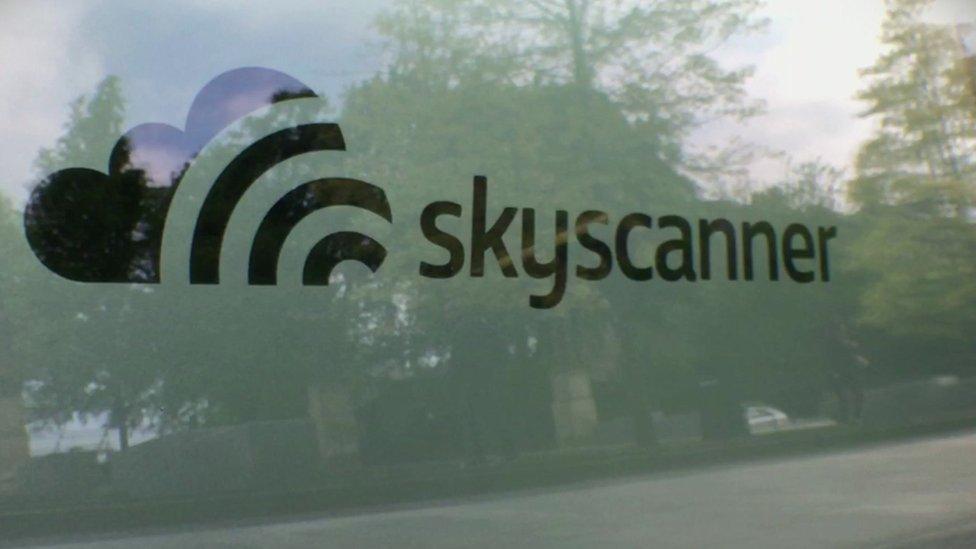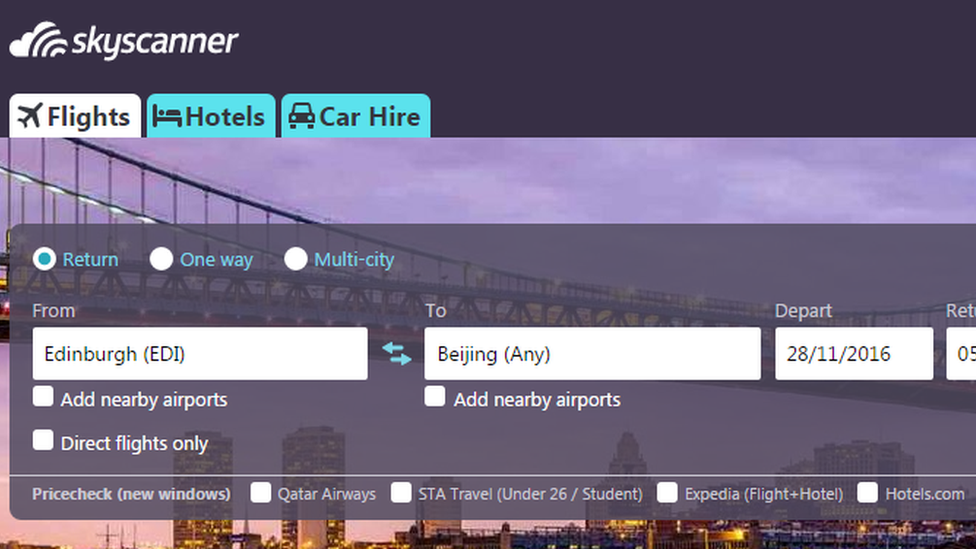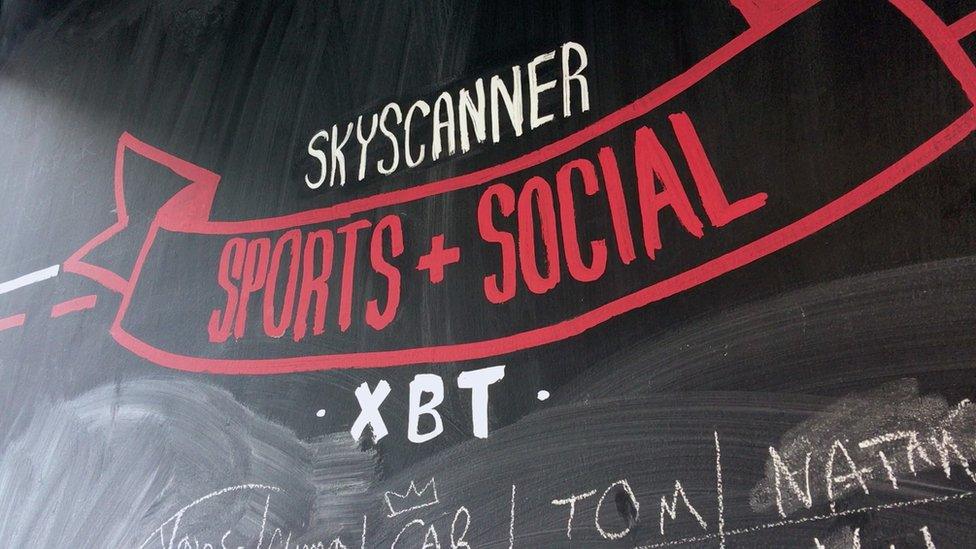Skyscanner: the unicorn and the dragon
- Published

It began with a ski-ing trip to France. Gareth Williams could already boast the rarity of a unicorn, being a ski instructor from Norfolk - a county rarely noted for its downhill potential.
Romance had brought him to Edinburgh. Time off from his software developer role in the Scottish capital was an opportunity to join his brother in the Alps.
In booking his flights, Williams realised that comparing prices on different websites didn't have to be so clunky. He could cut down half an hour of searching across different airline websites into a few seconds.
And if it saved him that much time, imagine what it could do if that was scaled up to millions of people, then translated into different languages, and adapted for a digital app. Add to that car hire, hotels and maybe one day trains.
He was one of three co-founders, and is now chief executive of Skyscanner. He's a unicorn in a different way now - boss of a billion dollar technology business.
Skyscanner has more than 60 million users per month. Last year, it had revenue of £120m, up 28% on 2014. That is from the earnings it makes for transferring its customers onto the sites where they buy the tickets.
Its gross bookings - that is, transactions facilitated through its search engine - was more than £9bn, up 49% in a year.

Williams has lost none of that ambition for the company's growth. Now across flights, car hire and hotels, he talks of travel representing a tenth of the world's economy, the potential for a hundred-fold growth to meet the demand for travel booking around the globe.
And the big growth area for that is Asia-Pacific. Skyscanner has already established a base in Singapore, with two offices also in China. But to crack the vast Chinese market is a big task. And that's where he sees the rationale that has made him very very rich.
He owns "between 10 and 15%" of a company which has just sold to its Chinese equivalent, Ctrip, for £1.4bn. While that will release a lot of cash, he's taking most of his profit in Ctrip shares, giving him a stake in "the next stage of the journey".
It also gives him an asset base and time to invest in other technology companies, and to lend a hand as a director and mentor, sharing the expertise he's built up.
Things were quite chipper in Skyscanner's Edinburgh headquarters on the day after the late-night announcement of the deal from Shanghai, though in an under-stated way.
At the reception desk, fashioned from an old aircraft wing, several crates of beer had been delivered, and pastries were on offer to visitors.
With 470 staff working across the Edinburgh and Glasgow offices, out of 800 worldwide, this millennial workforce is also cashing in on the Chinese deal.
In addition to the founder's stake, staff have built up equity totalling more than 10%. And Scottish Equity Partners, having invested £2.5m in 2008, has around a third.

Skyscanner says it will continue to be based in Edinburgh
In one sense, all this means the shareholder is changing, from one that has been mainly UK and US-based to one that is wholly Chinese. The company doesn't have to change.
Skyscanner remains an independent operator within the Ctrip group. The current management team remain in charge. The headquarters are in Edinburgh, even if the profits are sent abroad.
But the deal comes at a sensitive time, when the UK government has been looking to protect Britain's tech successes. Only a few hours before the Skyscanner deal was announced, the Chancellor, Phillip Hammond, was setting out plans to do just that.
Asked about the Skyscanner deal, the Prime Minister's spokesperson commented: ""We want to see inward investment into this country. We want to see our entrepreneurs succeeding.
"One of the things we have been setting out this week is how we are going to be seeking to do more to encourage innovation, to encourage new small businesses to grow and scale up, and looking at how we can support that."
With sterling assets looking much cheaper, that task of keeping British firms British has become much tougher.
And with the Brexit process focussing minds on where the UK economy is going next, there is a new awareness of the importance of retaining corporate headquarters.
That has been taken for granted in England. It has been a longer-running issue in Scotland, but not one given much priority recently. It is a curiosity that Scotland has a nationalist government that chooses not to play the economic nationalist card.
In the same building as Skyscanner, in Edinburgh's new Quartermile development, another technology success story is on the move.
Fan Duel has done very well in developing a website and digital app on which American sports fans can play fantasy team sports from week to week. Millions of them competing for more than a billion dollars in prizes each year.
The company has become a big player in the burgeoning sector. But last week, it announced plans to merge with its main US rival, Draft Kings.
The headquarters had already moved from Edinburgh to New York. The chief executive has made the same move.
The merging companies will have to choose between New York and Boston. But while software development jobs may remain in Edinburgh and Glasgow, the corporate clout of its headquarters does not.
So when you hear people ask why neither Britain nor the rest of Europe seem to grow the global technology giants, this gives some idea. The ideas and ambition can be found.
But sustaining this in a fractured and further fracturing European market isn't easy. The public can vote against global economic forces, but that doesn't mean they can control them.
- Published24 November 2016
